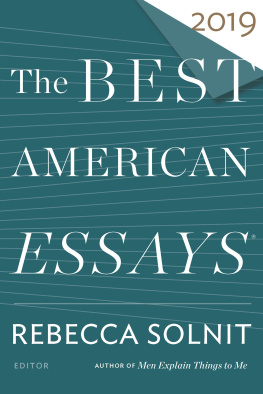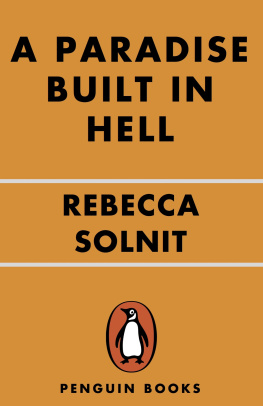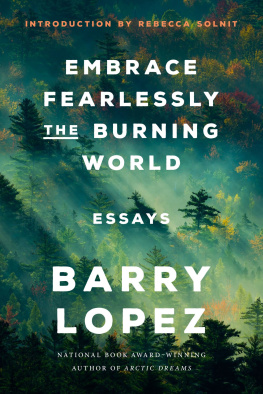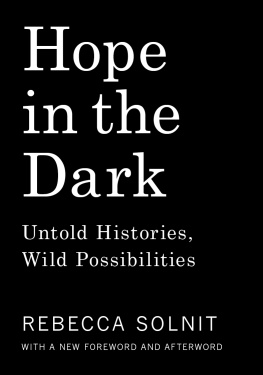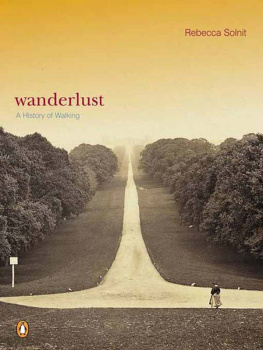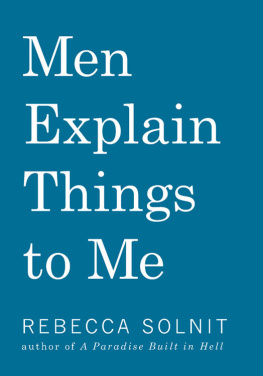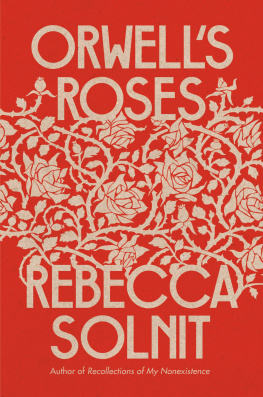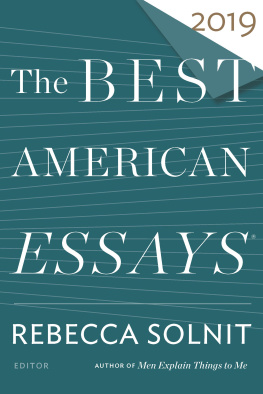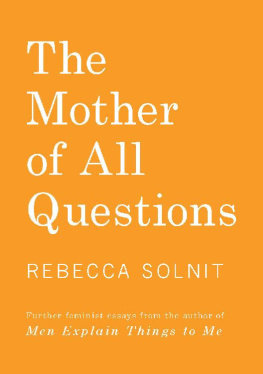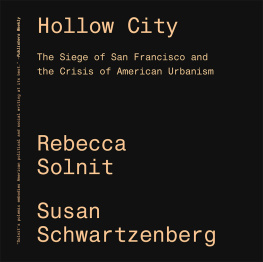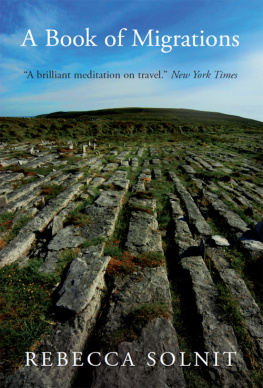Rebecca Solnit - Best American Essays 2019
Here you can read online Rebecca Solnit - Best American Essays 2019 full text of the book (entire story) in english for free. Download pdf and epub, get meaning, cover and reviews about this ebook. year: 2019, publisher: Mariner Books, genre: Politics. Description of the work, (preface) as well as reviews are available. Best literature library LitArk.com created for fans of good reading and offers a wide selection of genres:
Romance novel
Science fiction
Adventure
Detective
Science
History
Home and family
Prose
Art
Politics
Computer
Non-fiction
Religion
Business
Children
Humor
Choose a favorite category and find really read worthwhile books. Enjoy immersion in the world of imagination, feel the emotions of the characters or learn something new for yourself, make an fascinating discovery.
- Book:Best American Essays 2019
- Author:
- Publisher:Mariner Books
- Genre:
- Year:2019
- Rating:4 / 5
- Favourites:Add to favourites
- Your mark:
- 80
- 1
- 2
- 3
- 4
- 5
Best American Essays 2019: summary, description and annotation
We offer to read an annotation, description, summary or preface (depends on what the author of the book "Best American Essays 2019" wrote himself). If you haven't found the necessary information about the book — write in the comments, we will try to find it.
Best American Essays 2019 — read online for free the complete book (whole text) full work
Below is the text of the book, divided by pages. System saving the place of the last page read, allows you to conveniently read the book "Best American Essays 2019" online for free, without having to search again every time where you left off. Put a bookmark, and you can go to the page where you finished reading at any time.
Font size:
Interval:
Bookmark:
Copyright 2019 by Houghton Mifflin Harcourt Publishing Company
Introduction copyright 2019 by Rebecca Solnit
ALL RIGHTS RESERVED
The Best American Series is a registered trademark of Houghton Mifflin Harcourt Publishing Company.
The Best American Essays is a registered trademark of Houghton Mifflin Harcourt Publishing Company.
No part of this work may be reproduced or transmitted in any form or by any means, electronic or mechanical, including photocopying and recording, or by any information storage or retrieval system without the proper written permission of the copyright owner unless such copying is expressly permitted by federal copyright law. With the exception of nonprofit transcription in Braille, Houghton Mifflin Harcourt is not authorized to grant permission for further uses of copyrighted selections reprinted in this book without the permission of their owners. Permission must be obtained from the individual copyright owners as identified herein. Address requests for permission to make copies of Houghton Mifflin Harcourt material to trade.permissions@hmhco.com or to Permissions, Houghton Mifflin Harcourt Publishing Company, 3 Park Avenue, 19th Floor, New York 10016.
hmhbooks.com
ISSN 0888-3742 (print) ISSN 2573-3885 (e-book)
ISBN 978-1-328-46580-1 (print) ISBN 978-1-328-46711-9 (e-book)
Cover design by Christopher Moisan Houghton Mifflin Harcourt
Solnit photograph Trent Davis Bailey
v1.0919
Introduction: Lines from Asphodel, That Greeny Flower, by William Carlos Williams, from The Collected Poems: Volume II, 19391962, copyright 1955 by William Carlos Williams. Reprinted by permission of New Directions Publishing Corp.
Comforting Myths by Rabih Alameddine. First published in Harpers Magazine, June 2018. Copyright 2018 by Rabih Alameddine. Reprinted by permission of Rabih Alameddine and Aragi Inc.
We Are Not the Resistance by Michelle Alexander. First published in The New York Times, September 21, 2018. 2018 The New York Times. Reprinted by permission.
Obituary for Dead Languages by Heather Altfeld. First published in Conjunctions, Issue No. 70. Copyright 2018 by Heather Altfeld. Reprinted by permission of Heather Altfeld.
Come Heat and High Water by Mario Alejandro Ariza. First published in The Believer, December 2018. Excerpt from Disposable City by Mario Alejandro Ariza, copyright 2020. Reprinted by permission of Bold Type Books, an imprint of Hachette Book Group, Inc.
Getting It Twisted by Jabari Asim. First published in The Yale Review, October 2018. Copyright 2018 by Jabari Asim. Reprinted by permission of Jabari Asim.
The Autobiography of My Novel by Alexander Chee. First published in The Sewanee Review, Spring 2018. Reprinted from How to Write an Autobiographical Novel: Essays. Copyright 2018 by Alexander Chee. By permission of Houghton Mifflin Harcourt Publishing Company.
Is All Writing Environmental Writing? by Camille T. Dungy. First published in The Georgia Review, Fall 2018. Copyright 2018 by Camille T. Dungy. Reprinted by permission of Camille T. Dungy.
Stories of a Life (originally titled To Be, or Not to Be) by Masha Gessen. First published in The New York Review of Books, February 8, 2018. Copyright 2018 by Masha Gessen. Reprinted by permission of Masha Gessen.
My Father Says Hes a Targeted Individual. Maybe We All Are. by Jean Guerrero. First published in Wired, October 25, 2018. Copyright 2018 by Jean Guerrero. Reprinted by permission of Jean Guerrero.
On Likability by Lacy M. Johnson. First published in Tin House, October 11, 2018 (online). Copyright 2018 by Lacy M. Johnson. Reprinted by permission of Lacy M. Johnson and Tin House.
Guns in the Family by Walter Johnson. First published in The Boston Review, March 21, 2018. Copyright 2018 by Walter Johnson. Reprinted by permission of Walter Johnson.
How to Write About a Vanishing World by Elizabeth Kolbert. First published in The New Yorker, October 15, 2018. Copyright 2018 by Elizabeth Kolbert. Reprinted by permission of Elizabeth Kolbert.
Forever Gone by J. Drew Lanham. First published in Orion, Spring 2018. Copyright 2018 by J. Drew Lanham. Reprinted by permission of J. Drew Lanham.
Men Are More Afraid Than Ever by Lili Loofbourow. First published in Slate, September 18, 2018. Copyright 2018 The Slate Group. All rights reserved. Used under license.
Silence Breaking Woman (originally titled Surviving Racism) by Terese Marie Mailhot. First published in Pacific Standard, May 8, 2018. Copyright 2018 by Terese Marie Mailhot. Reprinted by permission of Terese Marie Mailhot.
When a Person Goes Missing by Dawn Lundy Martin. First published in n+1, Winter 2018. Copyright 2018 by Dawn Lundy Martin. Reprinted by permission of Dawn Lundy Martin.
Autobiography of an Iceheart by Kai Minosh Pyle. First published in Prism, Winter 2018. Copyright 2018 by Kai Pyle. Reprinted by permission of Kai Pyle.
Death of an English Major by Gary Taylor. First published in Tampa Bay Times, November 9, 2018. Copyright 2018 by Gary Taylor. Reprinted by permission of Gary Taylor.
The Rage of the Incels by Jia Tolentino. First published in The New Yorker, May 15, 2018. Copyright 2018 Cond Nast. Reprinted with permission.
In the Maze by Dayna Tortorici. First published in Issue 30, n+1, Winter 2018. Copyright 2018 by Dayna Tortorici. Reprinted by permission of Dayna Tortorici.
It is not possible to extricate yourself from the questions in which your age is involved.
Ralph Waldo Emerson, The Fortune of the Republic (1878)
What I have most wanted to do throughout the past ten years is to make political writing into an art.
George Orwell, Why I Write (1946)
For many years George Orwell avidly collected political pamphlets. After his untimely death at age forty-six in 1950, his collection of some 2,700 pamphlets from across the entire political spectrum (dating roughly from World War I through World War II) found its way to the British Library, where it has since supplied a wealth of information to scholars and historians of those turbulent times. In Pamphlet Literature, a brief essay contributed to the New Statesman in 1943, Orwell describes a small representative sample of his collection, identifying nine trends of the pamphleteering revival he had been following since 1935; he labels these Anti-left and Crypto-fascist, Conservative, Social Democrat, Communist, Trotskyist and Anarchist, Non-party radical, Religio-patriotic, and Lunatic. He also refers to a ninth category, Pacifistbut claims he has no samples of this trend handy to comment on. He then says amusingly that all these headings could be roughly reduced to two main schools, Party Line and Astrology.
Orwell wrote the essay, despite its title, mainly to complain about the decidedly unliterary nature of political pamphlets. They were not merely disappointing to a novelist and essayist whose literary goal was to make political writing into an art, but Orwell thought they were undeniably rubbish: There is totalitarian rubbish and paranoiac rubbish, but in each case it is rubbish. He considered this especially disappointing because of the times. The pamphlet, he said, ought to be the literary form of an age like our own. We live in a time, he continued, when political passions run high, channels of free expression are dwindling, and organized lying exists on a scale never before known. He blamed the publishing and literary worlds for not making the public more aware of the necessity of pamphlets, which are haphazardly printed and rarely advertised or reviewed. As a result, most good writers who have something they passionately want to say dont know how to go about publishing a pamphlet and so they leave the genre to either lunatics or political hard-liners. Orwell then shows his hand: The normal way of publishing a pamphlet is through a political party, and the party will see to it that any deviationand hence any literary valueis kept out. For Orwell, literary value apparently depends on some deviation from party lines.
Font size:
Interval:
Bookmark:
Similar books «Best American Essays 2019»
Look at similar books to Best American Essays 2019. We have selected literature similar in name and meaning in the hope of providing readers with more options to find new, interesting, not yet read works.
Discussion, reviews of the book Best American Essays 2019 and just readers' own opinions. Leave your comments, write what you think about the work, its meaning or the main characters. Specify what exactly you liked and what you didn't like, and why you think so.

